 Lusine Hambaryan, PhD,Head of Hydroecology laboratory, Scientific Center of Zoology and Hydroecology, NAN RA, Associate Professor, Chair of Ecology and Nature Protection, Yerevan State University, Armenia
Lusine Hambaryan, PhD,Head of Hydroecology laboratory, Scientific Center of Zoology and Hydroecology, NAN RA, Associate Professor, Chair of Ecology and Nature Protection, Yerevan State University, Armenia
Water is the most abundant substance on Earth, and it is essential for life. It symbolizes power, hope, purity, and change. Water brings people together who understand its importance, strengthens the principles of peace and justice in society, and promotes the active participation of youth in ecosystem protection functions. Sadly, more than 1 billion people worldwide still do not have access to clean water, according to the UN. Every year on March 22, the world celebrates World Water Day, which highlights the problems of freshwater and aquatic ecosystems. It also draws people's attention to these issues and encourages finding ways to solve them. I would like to take this opportunity to congratulate all my colleagues in the water sector on the occasion of International Water Day. I hope that we will continue to make every effort to make water a key to peace.
 Anar Nuriyev, Lecturer, Baku State University, Department of Hydrometeorology, Azerbaijan
Anar Nuriyev, Lecturer, Baku State University, Department of Hydrometeorology, Azerbaijan
Water is fundamental to life, livelihoods, and ecosystems. Its scarcity or mismanagement can lead to tensions and conflicts over access, use, and control. Conversely, cooperation in managing water resources can build trust, enhance stability, and create opportunities for mutual benefit. Water issues are complex and can be exacerbated by factors such as population growth, urbanization, climate change, and competing demands for water. Additionally, political tensions, unequal power dynamics, and historical grievances can hinder cooperation efforts. Overcoming these challenges requires sustained commitment, diplomacy, and innovative solutions. Azerbaijan is one of the countries with relatively less water resources. As a result of the unequal distribution of water resources in the country, water shortages are observed in many regions. From this point of view, one of the most important issues is the effective management of water resources and ensuring the ecological stability of water basins. The country's scarce freshwater resources, global climate change, and rising average temperatures in recent years, a significant reduction in surface water resources, river water, and precipitation, mainly from neighboring countries, on the other hand, rapid population growth, rising living standards, the country's economy, The increase in demand for water as a result of the development of agriculture, the expansion of arable land, irrigation and drinking water supply networks requires the implementation of urgent measures to ensure water security in the country. The dry climate of the plains of Azerbaijan shows that there is a great need for water for irrigation. The application of water-saving methods and technologies, and the improvement of the principles of agriculture and water management is a step toward sustainable use of water resources. Preparation of crop rotation based on the country's climatic conditions and water circulation plants, preparation of water turnover and water management reports taking into account the interests and share of all water users will determine the main line of water strategy and lay the foundation for efficient and integrated use of water resources. There are two statements that we use in our daily education system to explain the role of water in our lives and why we need a sustainable management system. The first statement by Ismail Serageldin “The wars of the twenty-first century will be fought over water.” and the second statement by UN Secretary-General Kofi Annan water problems could be a “catalyst for cooperation. Nowadays all countries should sit together and to find the ways for solution of common water problems. It is important to implement existing cooperation agreements and sign new cross-border cooperation agreements. Azerbaijan as a country with water shortage and as the country situated downstream of the river basins interested in water cooperation with all neighboring countries. "Water for Peace" refers to the idea that effective management and equitable distribution of water resources can help prevent conflicts and promote peace among nations and communities. It emphasizes collaboration, dialogue, and the peaceful resolution of water-related disputes. Water is not only a source of life but also a potential source of cooperation and peace. By recognizing the interconnectedness of water resources and the need for collaborative stewardship, we can build a more sustainable and peaceful future for all.
 Narmin Iskenderli, Leading Specialist, Department of International Relations, State Agency of Water Resources, Azerbaijan
Narmin Iskenderli, Leading Specialist, Department of International Relations, State Agency of Water Resources, Azerbaijan
Azerbaijan's main waterways are transboundary rivers, meaning that they flow through multiple countries. Therefore, the concept of "Water for Peace" is especially relevant for Azerbaijan. The pollution of these rivers from the territories of other countries has led to environmental stress and water shortages in Azerbaijan. To promote peace and cooperation, it is important to manage these rivers jointly, use water resources efficiently, and protect them from pollution. By doing so, we can create a sustainable and peaceful future for all.
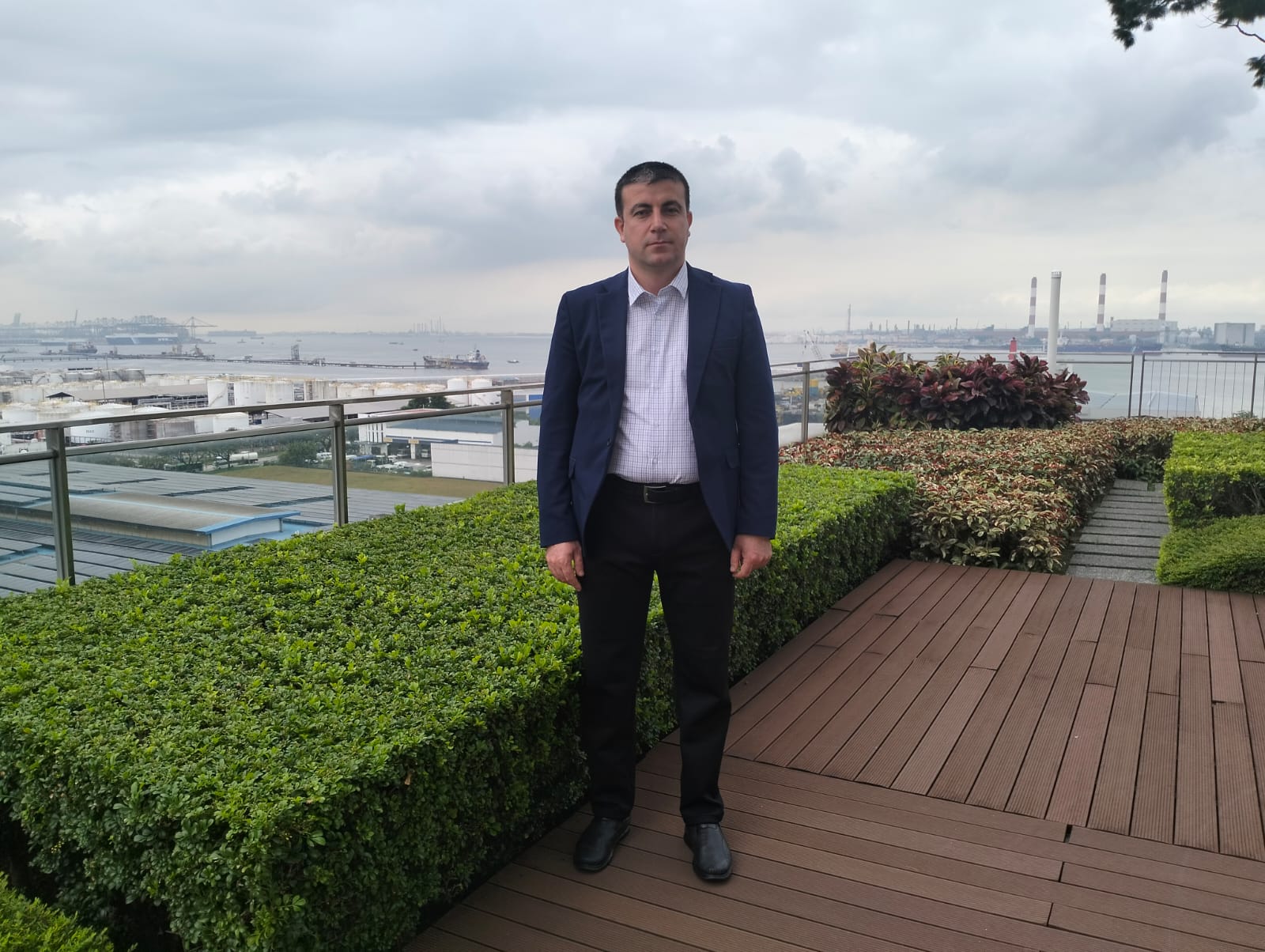 Rashail İsmayilov, Deputy Director of "Sukanal" Scientific- Research and Design Institute, Azerbaijan
Rashail İsmayilov, Deputy Director of "Sukanal" Scientific- Research and Design Institute, Azerbaijan
"Water for peace" is a concept that emphasizes the critical role of water in promoting peace and stability globally. Access to clean water is essential for human survival and development, and ensuring equitable distribution of water resources can help prevent conflicts over water scarcity. Additionally, collaborative efforts in managing transboundary water sources can foster cooperation among nations and contribute to peacebuilding initiatives. Overall, prioritizing access to water and sustainable water management practices can play a significant role in promoting peace and stability around the world.
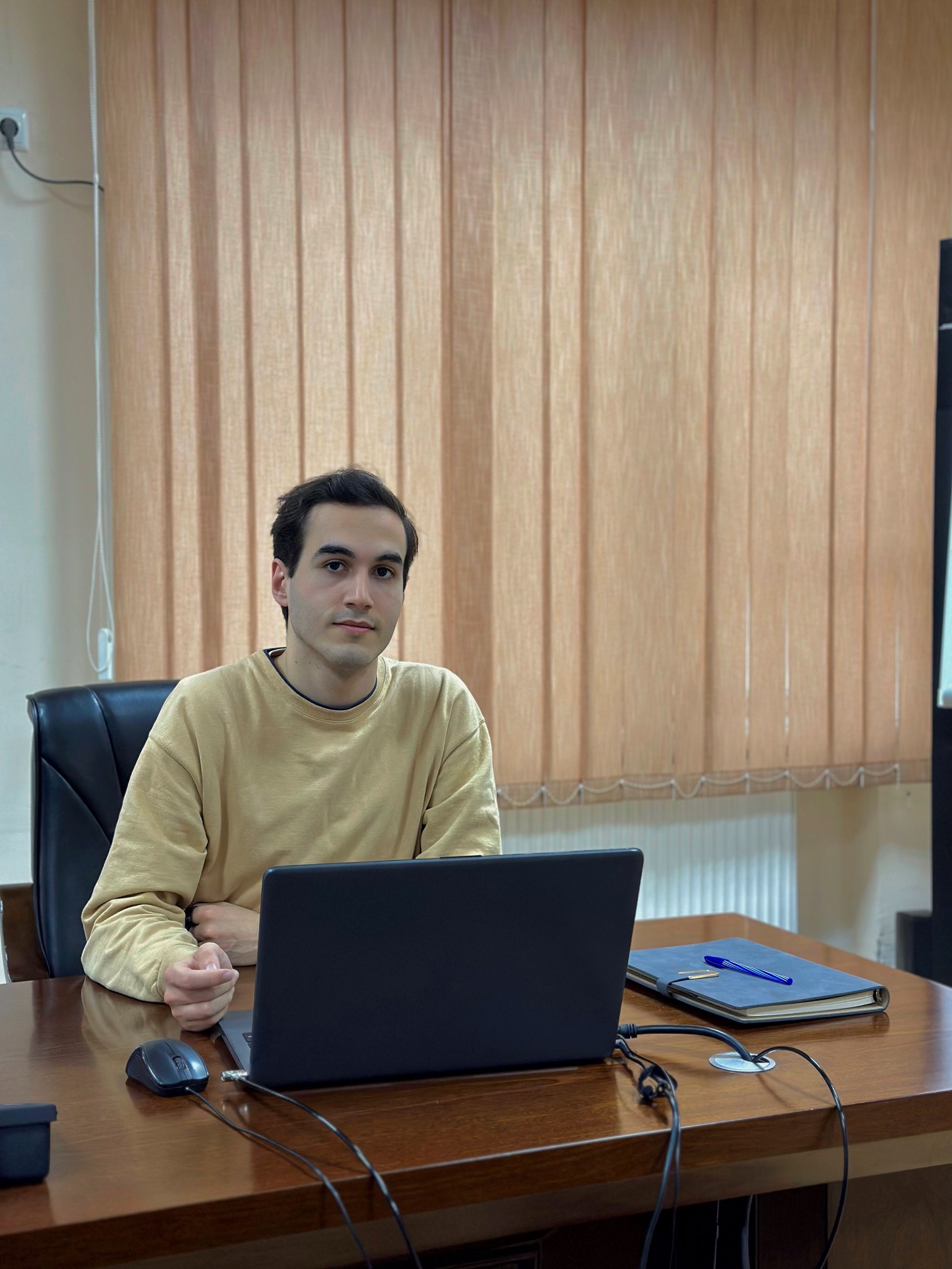 Nika Gogatishvili, Water Policy Division Specialist, Environment and Climate Change Department, Ministry of Environmental Protection and Agriculture of Georgia
Nika Gogatishvili, Water Policy Division Specialist, Environment and Climate Change Department, Ministry of Environmental Protection and Agriculture of Georgia
Water, the lifeblood of civilizations since prehistoric times, holds the key to our past, present, and future existence. We realize its global importance as we think about its role in developing and progressing civilizations and sustaining ecosystems. Access to clean water is more than a necessity; it is a fundamental human right that is crucial to everyone's well-being and prosperity. It is more than just a resource; it is the very foundation of existence. Therefore, for me, water is one of the most critical prerequisites for peace. Especially due to escalating risks of gradual scarcity caused by climate change necessitates collaborative use of water. Hence, prioritizing effective water resources management is extremely important for reducing tensions and fostering harmonious relations among nations, as conflicts over water scarcity may paralyze global peace efforts. Considering that, extremely huge conflicts can be triggered by the improper management of water.
 Ulan Chortombaev, Professor, Doctor of Economics, Director of the Kyrgyz Scientific Research Institute of Irrigation under the Water Resources Service under the Ministry of Water Resources, Agriculture and Processing Industry of the Kyrgyz Republic
Ulan Chortombaev, Professor, Doctor of Economics, Director of the Kyrgyz Scientific Research Institute of Irrigation under the Water Resources Service under the Ministry of Water Resources, Agriculture and Processing Industry of the Kyrgyz Republic
According to the will of the Almighty Creator, the world was transformed directly by such an integral natural resource as water. Water is the source of life for the entire surrounding world. Thanks to the creator, water resources are a factor in changing and solving multilateral issues of the social origin of all humanity, and influence the very essence of man as a whole. For example, noting the value of water today in the field of agriculture, we can say that water is one of the main natural resources. With the rational and efficient use of water resources in all areas of the national economy, one can see firsthand positive food and environmental security results. For every person, water is the source and meaning of life!
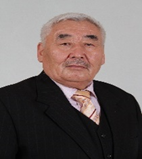 Zayirbek Karibayuly, Doctor of Technical Sciences, Professor, Department of Water Resources and Water Use, Kazakh National Agrarian Research University
Zayirbek Karibayuly, Doctor of Technical Sciences, Professor, Department of Water Resources and Water Use, Kazakh National Agrarian Research University
"Water for Peace" is the concept of providing adequate living conditions for every person in any country, while also preserving the environment. If this is not possible, we must learn to coexist with nature on a new level. Unfortunately, humans have disrupted nature's ability to self-regulate with artificial changes to the environment. This has led to fundamental changes in ecosystems and the progressive destruction of the biosphere. For Kazakhstan, it is important to develop a new paradigm for using water resources that meets modern international requirements while promoting sustainable economic development and environmental sustainability. We need to create favorable social and environmental conditions for the people of Kazakhstan, using water and land resources in a way that satisfies their material and spiritual needs while maintaining ecological balance. This will lead to good relations with neighboring states in transboundary river basins and help ensure peace. Overall, the key to peace is the development of rational methods for using water and land resources.
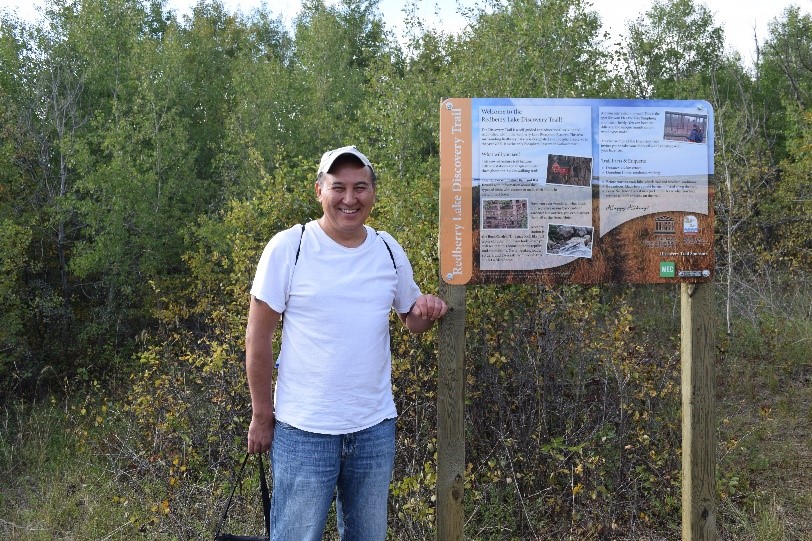 Janay Sagin, Ph.D., Professor, Geomatics Engineering, School of Information Technology and Engineering (SITE), Kazakh-British Technical University (KBTU), Kazakhstan
Janay Sagin, Ph.D., Professor, Geomatics Engineering, School of Information Technology and Engineering (SITE), Kazakh-British Technical University (KBTU), Kazakhstan
"Water for Peace" means achieving a balance between human needs and nature, allowing flora and fauna to coexist with humans. In this balance, nature, flora, and fauna should have equal or even greater rights than humans. Unfortunately, humans often prioritize their own needs over the interests of nature and its inhabitants. When managing natural resources like water, it is important to submit to nature's will and try to understand what nature needs. We should stop interfering with the natural world and building artificial dams that disrupt natural ecosystems. In Kazakhstan, desertification is a major problem, affecting up to 60% of the country's territory. This problem is caused by humans who drain swamps, concrete river banks, and build on lands taken from swamps in cities like Astana and Almaty. To address this issue, it is optimal to legally prohibit the destruction of wetlands and build settlements outside of floodplains. Rather than investing only in large cities like Astana and Almaty, it is better to promote the development of small towns and urban-type settlements throughout Kazakhstan. Large cities are complex and subject to large-scale man-made emergencies. With current technologies, it is easier to provide engineering communications and water supply systems in the steppe than to continue destroying water resources by draining swamps, concreting, and destroying wetlands. For me, "Water for Peace" means creating a world where nature and water are given equal importance and respect.
 Saidrasul Sanginov, Deputy Chairman of the Executive Committee of the Central Kengash of the Ecological Movement of Uzbekistan
Saidrasul Sanginov, Deputy Chairman of the Executive Committee of the Central Kengash of the Ecological Movement of Uzbekistan
As you may be aware, March 22 is recognized as World Water Day. Environmental organizations around the World celebrate this day as one of the most significant environmental dates on the calendar. Typically, ecologists organize various events on all continents on this day, including conferences, scientific symposiums, seminars, training sessions, round tables, expert meetings, conversations with youth, and environmental campaigns. These events aim to promote respect for water resources and clear watercourses of household waste and silt. The Uzbekistan environmental movement was established in 2008 to prioritize the resolution of issues related to water resources. Due to the severe scarcity of water resources in many parts of Central Asia, the use of water resources for agricultural irrigation and drinking water supply should be given special attention to prevent conflicts among water users, both within and between countries. This year, World Water Day is themed "Water for Peace" to emphasize the importance of promoting peace through access to water resources. The Republic of Uzbekistan is located in the heart of the Central Asian region, and it relies heavily on the water resources of the transboundary river basins of the Amu Darya and Syr Darya. Therefore, following the provisions of the Helsinki and New York Conventions on transboundary waters, it is important to ensure a fair and reasonable use of these resources, taking into account the interests of all riparian countries. Representatives of the Ecological Movement of Uzbekistan are partners of many international organizations that work in the field of water resources, such as GWP, IWMI, and ICWC, among others. They regularly take part in important international events, such as world water forums, conferences, seminars, and meetings. Water issues hold a significant priority in the plans of the Eco-Movement, and they are discussed during more than 30 environmental events, such as World Wetlands Day, International Day Against Dams, International Earth Day, and International Climate Day. These events engage young people to increase their environmental knowledge, especially about water resources and the importance of respecting them, as well as the coordinated use of transboundary waters to strengthen peace in our region. The Eco-Movement places great importance on improving the environmental culture of the population, particularly in caring for water. Several methods are employed, including meetings in mahallas and educational institutions, environmental competitions and events, hashars for planting tree seedlings under the national project "Yashil Makon" ("Green Space"), round tables, and training sessions for environmental activists. The environmental movement, which is a member of the Climate Network of Civil Society Organizations of Central Asia, organized the National Climate Network of Uzbekistan, at whose training under the motto “Water for the World” the issues of the relationship between climate change and the dynamics of changes in water resources in the Central Asian region are discussed. Understanding the exceptional significance of the thesis “Water for the World” in the context of worsening water problems and increasing turbulence in world events, the Eco-Movement strives to use all available means to promote reasonable, fair, and coordinated management of water resources in Central Asia for the sake of peace and well-being of the inhabitants of the region.
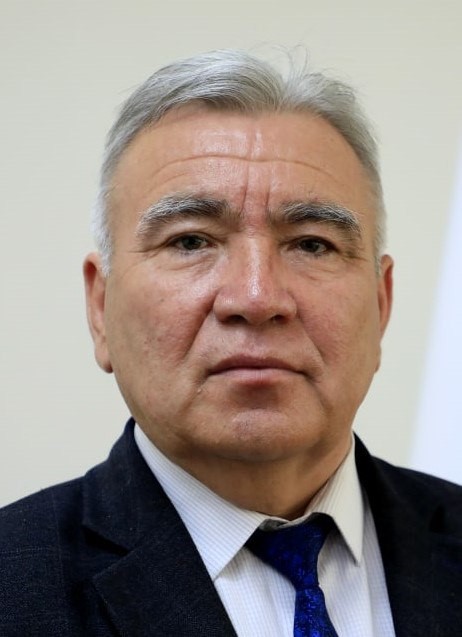 Abror Gadaev, Professor, Department of Environmental Engineering, Samarkand State University of Architecture and Civil Engineering named after Mirzo Ulugbek, Uzbekistan
Abror Gadaev, Professor, Department of Environmental Engineering, Samarkand State University of Architecture and Civil Engineering named after Mirzo Ulugbek, Uzbekistan
Water for me is life! Even 1/3 of the planet is water, however, unfortunately, available water resources are limited. This applies to fresh and usable water supplies. Regions with limited water resources like Uzbekistan value a drop of it like gold! Other regions are moving towards this, even if they have large reserves of water resources. This is because intensive development without water is impossible - this means intensive pollution of water and the environment. Climate change leads to water imbalance, which means it’s time to think about saving and rational use of water, even if their reserves are sufficient. This applies to each of us, no matter where we live and what we do. Soon, the export of drinking water will begin as a carrier of life and well-being, which is more expensive than energy resources and more expensive than gold!
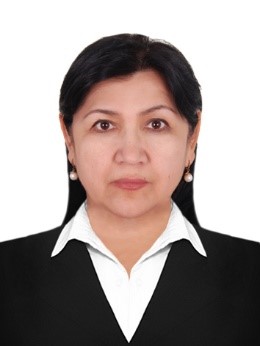 Ikramova Malika, Doctor of Technical Sciences, Professor, Scientific Research Institute of Irrigation and Water Problems of the Ministry of Water Resources of the Republic of Uzbekistan
Ikramova Malika, Doctor of Technical Sciences, Professor, Scientific Research Institute of Irrigation and Water Problems of the Ministry of Water Resources of the Republic of Uzbekistan
Water and water-related issues are of the utmost importance to Uzbekistan. Only 20% of the country's water resources are generated within its borders, while the remaining 80% comes from external sources. Unfortunately, climate change, dwindling precipitation, and the shrinking area of glaciers that form water resources are all contributing to a decrease in the amount of available water. Over the past 50 years, the flow of the Syrdarya and Amudarya rivers has declined by 20%, which has had a significant impact on the food security of Central Asian nations. To address these challenges, the countries of Central Asia have developed joint action programs on water resources, agreements, and commitments for the distribution of available resources between countries. The established Interstate Commission for Water Coordination of Central Asia provides monitoring and reporting on the use of shared water resources. And I am sure that such work by countries leads to ensuring peace and stability in the region.
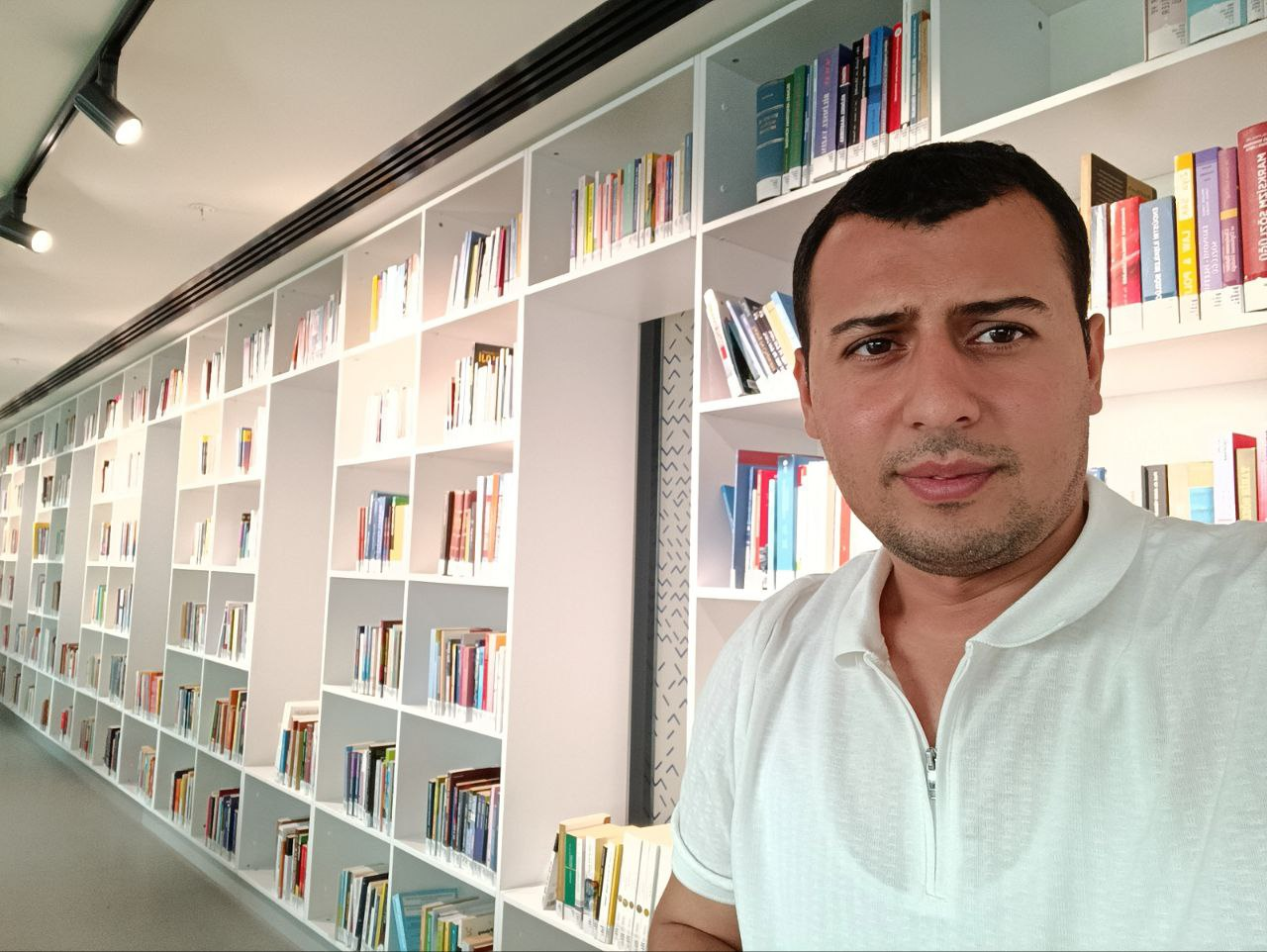 Murtazaev F., Doctoral student at the Samarkand State University of Architecture and Civil Engineering named after Mirzo Ulugbek, Uzbekistan
Murtazaev F., Doctoral student at the Samarkand State University of Architecture and Civil Engineering named after Mirzo Ulugbek, Uzbekistan
Water is the basis of life, and without it, no living creature can survive. Its importance cannot be overstated, and we only realize how essential it is when we lack it. Water is crucial for humans and the environment, and it plays a vital role in many aspects of our world. That's why it's a priority for any state to protect water resources and ensure access to high-quality drinking water. This is essential for people's health, livelihoods, and the environment, and it's also an indicator of a country's development. Water is also important for the economy as it's used in agriculture, industry, energy, and transportation systems. However, the planet's water resources are under threat due to pollution, overpopulation, climate change, and exploitation. That's why my main goal is to research water treatment technologies and apply them to improve water quality and ensure the efficient use of water resources. Access to clean water is a fundamental right for all people, and its preservation for future generations is essential for peace and stability in the world.
 Garabet Kazanjian, Assistant Professor at the American University of Armenia
Garabet Kazanjian, Assistant Professor at the American University of Armenia
People often repeat the statement that has now long become a cliché: “water is life”; and while that holds true in many aspects, this notion in the minds of many who utter it is limited to perhaps just drinking water or at most also for hygienic reasons. But water is vital for a lot more than that. In fact, about ¾ of the world’s freshwater consumption goes towards food production. Water’s importance also grows ever more prominent for ensuring energy security, especially as governments move away from fossil fuels to reduce their carbon emissions. Many industries require large amounts of water to operate, from mining to production, even tech companies. With the global population growing and much of the world on the path to further development, global freshwater abstraction has quadrupled during the past century. Lastly, access to clean water has always been important to providing a healthy and safe environment for a population. As such, water, the source of life, is also a source of contention. We’ve already seen conflicts erupt on multiple continents due to water. We’ ve witnessed mass migrations occur due to water shor tages as people can no longer provide sustenance for their families. The latest analyses from the World Bank indicate that the lack of water is linked to 10% of the rise in global migration. In Armenia, none of this should be foreign to us. We’ve already witnessed how Lake Sevan “fed the nation” and provided a significant portion of the country’s energy production during the economic hardships after the collapse of the Soviet Union. We also saw a year ago how t he Sarsang reservoir was heavily relied on and, eventually, was depleted, when Artsakh was subjected to a long blockade. As populations grow and climate change disrupts weather patterns, the availability of clean water is becoming increasingly uncertain. This uncertainty poses a significant threat not only to human health and well-being but also to global peace and stability. Water shortages almost always lead to economic instability and, at worst, to food insecurity and health repercussions. Such occurrences are either driven by conflicts or they themselves lead to conflicts. In the Caucasus, a region long riddled with conflicts and forecasted to suffer from increased water stress in the coming decades due to climate change, planning for long-term water security is paramount to ensuring the country’s and in reciprocity the region’s stability. Ensuring water security is not just about having enough water; it is also about managing water resources wisely and equitably. This requires cooperation and collaboration at all levels, from local communities to nations and international organizations. It means finding innovative solutions to water management, such as recycling wastewater, implementing water conservation measures, and investing in water infrastructure, especially while we are facing an imminent risk of a global water crisis. Peace is not just the absence of conflict; it is also the presence of justice and equity. Water security is essential for achieving peace, as access to clean water is a basic human right.
